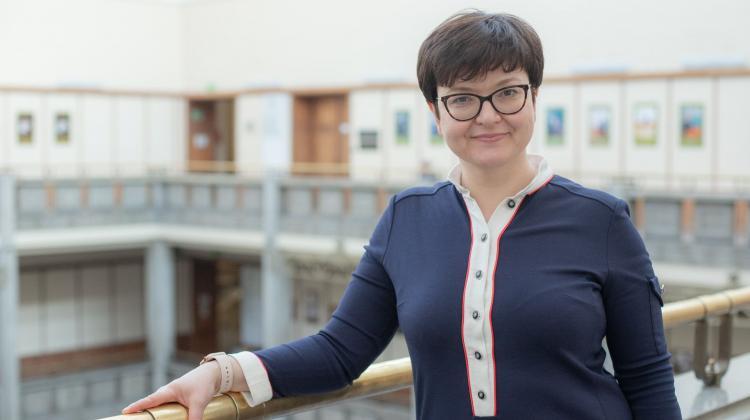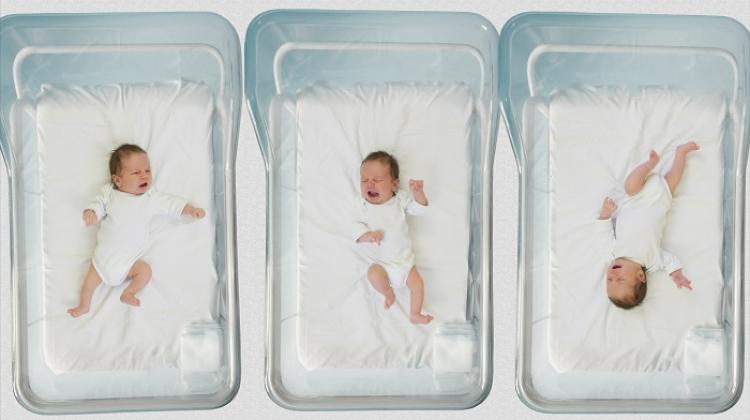When I’m 54… Scientists working on 'portraits' of 50+ generation in Europe
 Dr. Agnieszka Chłoń-Domińczak. Credit: Warsaw School of Economics
Dr. Agnieszka Chłoń-Domińczak. Credit: Warsaw School of Economics
Scientists are preparing ‘portraits’ of people over 50 to study how their personal circumstances compare to those in other countries.
The Survey of Health, Ageing and Retirement in Europe - SHARE: 50+ in Europe is a panel study conducted regularly among people aged 50 and over.
Currently, almost all European countries and Israel, representing 28 countries in total, are involved in the study.
Tens of thousands of respondents answer questions about their health, financial situation, family situation, social activity, how they fare in the labour market and how satisfied they are with their work, as well as their retirement process. Measurements related to the physical and mental health assessment are also conducted, for example, the handshake strength measurements and memory tests.
Professor Agnieszka Chłoń-Domińczak, a demographer from the Warsaw School of Economics said: “Each study is a photograph of what is currently happening. As a result, we have a series of photographs of what was happening over many years. We can monitor the process of changes in the course of the respondents' lives and compare the situation in individual countries.
She added: “Our goal is to develop a portrait of the 50+ generation in all European countries.”
So far, Poland has taken part in five rounds of the SHARE: 50+ in Europe survey, carried out from 2006 to 2017. Data from the latest round, carried out in 2019 and 2020 (just before and during the pandemic), are currently being analysed.
However, in 2015 about 20 percent of people in the 50+ group from Poland declared poor health. Symptoms of depression were recorded in 48 percent women and 30 percent men.
Professor Chłoń-Domińczak said: “In Poland, the health condition deteriorates early, in people over 45 years of age. Compared to Western Europe, the economic activity of people in the 50+ group, especially women, is low.
“The results available from the next survey, from 2017, also show that the situation is far from great. The health condition of Poles over 45 is clearly deteriorating. This is a very early age. We need active measures to support pro-health attitudes in seniors and monitor their situation.”
Financial issues do not look very good either. In 2015, more than 20 percent of Polish respondents in the SHARE study said that they were barely making ends meet, and over 60 percent said that they were not able to afford an unforeseen expense (PLN 1,100).
Chłoń-Domińczak said: “The economic activity of people aged 50+ is a problem. We have a lower retirement age - especially for women - than in other European countries. So the challenge for the coming years is how to encourage people around the age of 60 to maintain their professional activity. There is a lot to be done.”
She added however, that in the next rounds of the study the situation in Poland will probably improve. She said: “The generation we have studied so far has experiences from different moments in the history of Poland. The socio-economic conditions were completely different than they are now and all this affects the situation of these people. But the research already shows favourable generational changes in certain areas.
“People born later, who are reaching the age of 50 now, more often have a high school diploma, higher education. This translates into their health awareness, among other things, and thus also their life expectancy.
“The SHARE survey allows us to assess the situation of people in the 50+ group in Poland and Europe in many dimensions. Thanks to this, we can influence their quality of life and activity through appropriate, fact-based policies.”
PAP - Science in Poland, Ludwika Tomala
lt/ ekr/ kap/
tr. RL
Przed dodaniem komentarza prosimy o zapoznanie z Regulaminem forum serwisu Nauka w Polsce.



















